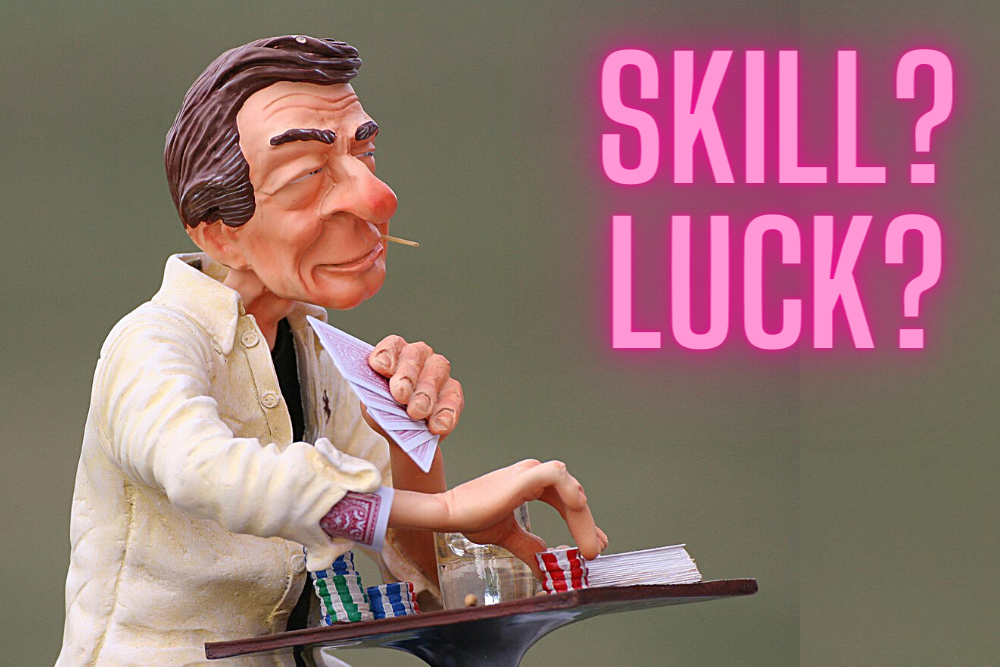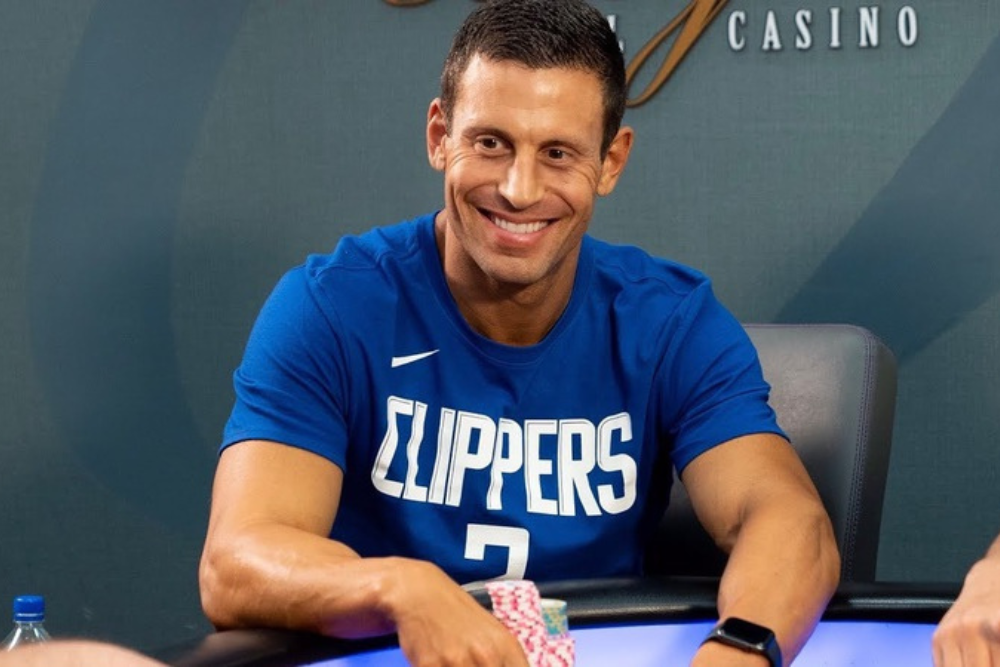When most people think of gambling, they associate it with luck unless they have a unique system they believe will shift the odds in their favor. The reality is that any game played against the casino involves chance and the odds are rarely in your favor, even with that ‘foolproof system.’
Poker is different. It is a game played against others like yourself, and there is no house advantage involved.
If it’s played in a casino, the house takes a small fee from each game, but it has no interest in who wins or loses. There is no fee if you’re playing at a friend’s house, although we are strong advocates of bringing some extra drinks or a snack platter to make a good time even better.
So is poker a game of chance or skill?
How players respond to that question depends on whether they make or lose money playing poker. Players that consistently make money will say skill, and you can surely guess which players call it luck.
READ ALSO: What Percent of Poker Players Make Money?
The beautiful thing about poker is that everybody thinks they can play. – Chris Moneymaker
The question of skill or chance has been the subject of numerous scientific studies.
In fact, the National Library of Medicine has several published studies. A quick search of ‘poker’ on Google Scholar will bring up many more, from discussions on using Game Theory in poker, game strategies, or the psychological challenges of the game.
Even the renowned economist Steven D. Levitt of the University of Chicago has published a paper on the role of skill versus luck in the Journal of Sports Economics.
To summarize all of the studies, poorly performed studies with small sample sizes and too few hands played will acknowledge little to no skill involved with poker. In contrast, studies that consider thousands of hands and compare accomplished players against novices support poker being a game of skill.
Numerous judges have called poker a game of skill in court cases where the legality of playing poker has been tried.
READ ALSO: Is It Legal to Play Poker for Money At Home?
The most famous of these cases took place in 2012, with a federal judge for the US District Court for the Eastern District of New York wrote the opinion, “increased proficiency boosts a player’s chance of winning and affects the outcome of individual hands as well as a series of hands.”
Had the Supreme Court agreed to pick up the case in 2014 and ruled similarly, online poker would be legal in all states today.
What is Skill in Poker?
Everything in life has some degree of chance involved.
Skill is when it is possible to take chance and then create an advantage from it. Texas Hold ’em’s primary degree of chance is the opening deal, and the two hole cards are randomly dealt and set up the play for the rest of the game.
While every hand is dependent on what a player has ‘in the pocket,’ a poker bet isn’t won only by having the best hand. Every card dealt into the community cards might change the odds.
Still, the player has to know how to play the hand, what their odds might be, what other players are representing their odds to be, how much power the player has relative to table position, and how likely others are to fold, call, or raise a bet. Those are just some of the things a player has to consider.
Other than the cards dealt, every aspect of poker can be called a skill, from determining how much to bet to when to fold.
The Empirical Evidence
Most studies about poker fail to mention that it has stars, champions, and people who consistently earn a wage from it.
That alone should be evidence that it is a game of skill. Feel free to ask Daniel Negreanu how he accumulated most of his $60 million net worth. It just so happens that over $44 million of it is career tournament winnings.
Over his 50 years of playing poker, Doyle Brunson created a net worth of over $75 million, and Phil Ivey has clocked in over $100 million in winnings in just over 20 years.
Other players consistently win at poker, whether at weekly home games or Las Vegas tournaments.
Luck isn’t consistent, but skill can be present every time you play. The fact that there are professional poker players of all levels proves that poker is a game of skill.
The Luck/Skill Breakdown
It’s just an opinion, but one could say that poker is 20% luck and 80% skill.
That mixture is a mirror of life in general.
Even in your daily job, luck is a prominent component that impacts you no matter how great you are at performing your job. That copy machine imploding right before your big meeting in the conference room is considered chance; how you recover from it is skill.
Sometimes just being in the right place at the right time can mean everything, but only if you know how to capitalize on it.
That’s poker. Getting great hole cards is luck, and winning regardless of the quality of the cards is skill.
Can I Develop the Skill Require to Play Hold ’em?
Ask poker pros what makes them the most money when playing poker, and they’ll usually tell you something similar to the quote above; everyone thinks they know how to play.
While it is clear that most don’t know how to play, skills can be acquired. You may never be a Doyle Brunson or Daniel Negreanu, but anyone with some patience, dedication, and openness to learning can improve their game and become a consistent winner.
Now go learn some beginner strategies and move to intermediate and expert play as you feel comfortable. Poker is a skill, and the great thing about skill is that it can usually be learned.
Now, I’d love to hear from YOU:
Do you think poker is gambling? What percentage would you say it’s luck vs skill? Let us know in the comments below!



